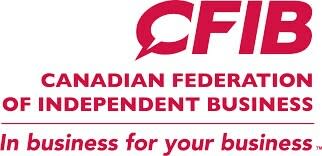TORONTO, April 25, 2024 /CNW/ – The long-term confidence index for the next 12 months fell 5.4 points to 47.5. This indicator decreased for the second consecutive month, according to the latest Business Barometer® from the Canadian Federation of Independent Business (CFIB).
Most provinces lost ground or remained constant. ontario (-6.7 index points to 49.2) and saskatchewan (-7.0 to 47.6) lost most of their optimism this month.
“Small business owners are trying to get back on their feet, but they keep getting knocked down. April 1st “The carbon tax increase, minimum wage increases in certain provinces and the persistent lack of demand have negatively impacted their confidence levels for next year,” he said Andreea Bourgeoisdirector of economics of the CFIB.
Typically, companies are looking to hire this time of year ahead of the summer season, but small businesses are timid about hiring full-time in April: 16% expect to hire in the next three or four months and 11% are looking to hire. dismiss. . Small business average wage and price increase plans also increased to 3.2% and 2.9%, respectively.
“The 0.5% month-on-month growth in the average price increase planned for the next 12 months is worrying. While one month doesn’t set a trend, it shows us the negative headspace many business owners are in. “Payroll increases and high wage costs once again affect a record proportion (68%) of businesses, it makes sense that they would be less likely to hire and expect to raise prices,” he added. Bourgeois. “The recent carbon tax increase may also force some companies to pass on additional costs to consumers.”
Lack of demand has increased steadily since the second quarter of 2023 and remains the main factor limiting business growth and sales for more than half (52%) of small businesses in April. A special analysis on insufficient demand in the latest CFIB report Quarterly Main Street He revealed that it is at the highest level since the pandemic began, affecting half of SMEs.
High insurance costs are also causing challenges for 72% of businesses, having reached the highest point in decades and well above their historical average of 49%.
“The situation is not looking good for many SMEs this month,” Bourgeois concluded. “Although the Bank of Canada “Tightening policy helps cool inflation, but it is negatively impacting businesses’ ability to operate and compete.”
Methodology
Business Barometer® for April: The April findings are based on 657 responses from a stratified random sample of CFIB members to a controlled-access web survey. The data reflects the responses received from April 2 to 17. The results have a statistical precision of +/- 3.8%, 19 out of 20 times. Each new month, the entire indicator series for the previous month is recalculated to include all survey responses received in that previous month. Measured on a scale between 0 and 100, an index above 50 means that owners who expect their business to perform stronger over the next three to 12 months outperform those who expect weaker performance.
About CFIB
The Canadian Federation of Independent Business (CFIB) is Canada The largest association of small and medium-sized businesses with 97,000 members in all sectors and regions. CFIB is dedicated to increasing business owners’ chances of success by driving policy changes at all levels of government, providing expert advice and tools, and negotiating exclusive savings. Learn more at cfib.ca.
SOURCE Canadian Federation of Independent Business
View original content to download multimedia: http://www.newswire.ca/en/releases/archive/April2024/25/c0220.html
